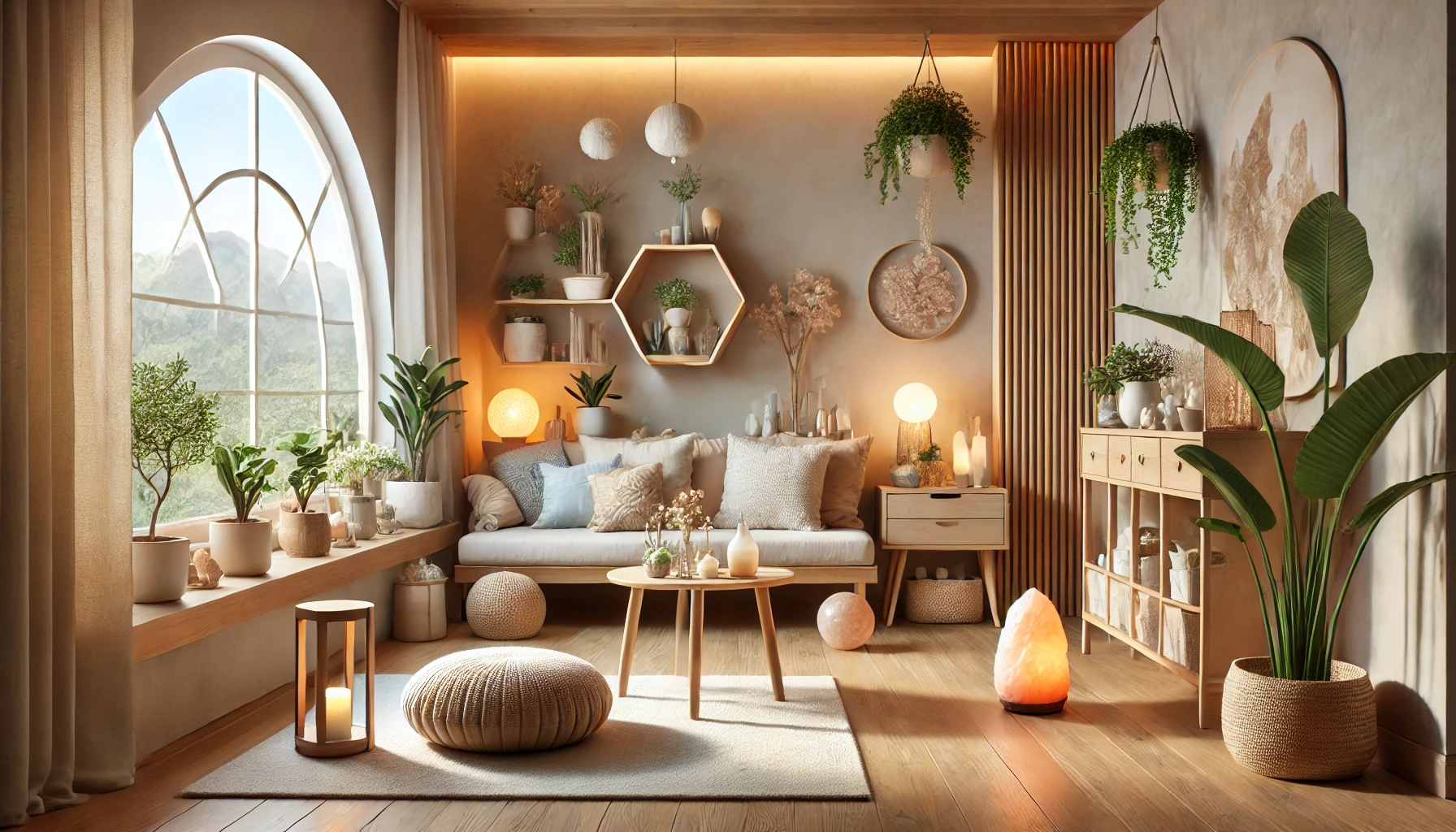How to Use Feng Shui to Cultivate Inner Peace and Emotional Well-Being
A balanced and harmonious home environment plays a crucial role in emotional well-being. Feng Shui can help create a peaceful space that reduces stress, enhances relaxation, and promotes a positive state of mind. By adjusting energy flow, decluttering, and incorporating calming elements, you can transform your home into a sanctuary that nurtures inner peace.
1. Declutter to Create Mental Clarity
Clutter not only disrupts physical space but also affects emotional balance and mental clarity.
- Remove unnecessary or broken items to allow fresh energy to circulate
- Keep common areas clean and organized to create a sense of order
- Avoid storing items under the bed, as they can contribute to subconscious stress
- Regularly open windows and let in fresh air to refresh the energy of the space
2. Choose Soothing Colors for Emotional Balance
Colors influence emotions and can help create a peaceful environment.
- Soft blues and greens – Encourage calmness and relaxation
- Earthy tones (beige, terracotta, soft browns) – Promote grounding and stability
- Lavender and light pink – Support emotional healing and self-love
- White and light gray – Enhance clarity and a sense of renewal
Avoid overly bright or dark colors in rest areas, as they can be too stimulating or draining.
3. Arrange Furniture to Encourage Flow and Comfort
The way furniture is positioned impacts energy flow and emotional comfort.
- Keep seating arranged in a welcoming, circular formation to encourage conversation
- Avoid blocking pathways with furniture, as it disrupts the natural movement of energy
- Use soft, rounded furniture or decor instead of sharp, angular pieces
- Ensure the bed is positioned against a solid wall, promoting security and rest
4. Create a Peaceful Sleeping Environment
A well-arranged bedroom promotes restful sleep and emotional stability.
- Keep electronics and work-related items out of the bedroom to maintain a relaxing atmosphere
- Use soft bedding and warm lighting to enhance comfort
- Place the bed in the command position (diagonal from the door, but not directly in line)
- Use curtains or blackout blinds to block excessive outside light and create a restful space
5. Incorporate Natural Elements for Emotional Stability
Nature has a calming effect on the mind and body, making it essential in Feng Shui.
- Add indoor plants like peace lilies, snake plants, or lavender to promote relaxation
- Use wooden furniture or decorations for a grounding energy
- Include a small water feature, such as a tabletop fountain, to encourage emotional flow
- Avoid artificial plants, as they do not contribute to the energy of the space
6. Use Lighting to Create a Calming Ambiance
Lighting influences mood and energy levels.
- Use soft, warm lighting instead of harsh fluorescent lights
- Place candles or Himalayan salt lamps in relaxation areas for a gentle glow
- Maximize natural light during the day to boost mood and clarity
- Install dimmable lights or bedside lamps to adjust lighting according to mood
7. Reduce Noise and Disruptions
A quiet environment supports emotional well-being and inner peace.
- Use soft rugs, curtains, or acoustic panels to absorb excessive noise
- Play soothing nature sounds or calming music to promote relaxation
- Avoid loud, high-energy decor, such as bright colors or busy patterns in rest areas
8. Keep the Bathroom Energy Balanced
Bathrooms can drain energy if not maintained properly, affecting emotional balance.
- Keep the toilet lid closed to prevent energy loss
- Use earth elements like stones or plants to stabilize excess water energy
- Ensure good ventilation to avoid moisture buildup and stagnant energy
- Decorate with soft colors and gentle lighting to create a spa-like feel
9. Designate a Meditation or Relaxation Space
A dedicated space for mindfulness, meditation, or quiet reflection enhances emotional well-being.
- Choose a quiet corner with minimal distractions
- Add a comfortable cushion, yoga mat, or soft seating
- Use aromatherapy, incense, or essential oils to create a calming atmosphere
- Decorate with soothing artwork, crystals, or meaningful symbols
10. Use Feng Shui Symbols to Strengthen Emotional Peace
Certain objects can promote relaxation and balance.
- Amethyst or rose quartz crystals – Encourage emotional healing and harmony
- A Zen garden or water feature – Helps reduce stress and create tranquility
- A Buddha or lotus statue – Symbolizes inner peace and mindfulness
- A small bowl of sea salt – Absorbs negative energy and purifies the space
11. Maintain a Stress-Free Entrance
The entrance of your home influences the energy that enters.
- Keep the front door clean and unobstructed to allow positive Chi to flow freely
- Use a welcoming doormat and soft lighting to create a peaceful entrance
- Place a small plant or calming artwork near the door to invite serenity
12. Practice Daily Feng Shui Habits for Emotional Well-Being
Small daily practices help maintain a peaceful and balanced home.
- Start the day with five minutes of quiet breathing or meditation
- Declutter a small space each day to keep energy fresh
- Burn sage, palo santo, or incense weekly to clear negative energy
- Express gratitude for your home and surroundings, reinforcing positive energy
Final Thoughts: Creating a Home That Supports Inner Peace
Applying Feng Shui principles helps create a home that nurtures emotional well-being, reduces stress, and promotes a sense of calm. A clutter-free, balanced space with natural elements, soothing colors, and thoughtful arrangements can significantly enhance inner peace.
A harmonious home environment supports mental clarity, relaxation, and personal growth. By making small, intentional changes, you can cultivate a space that encourages tranquility and emotional balance every day.
